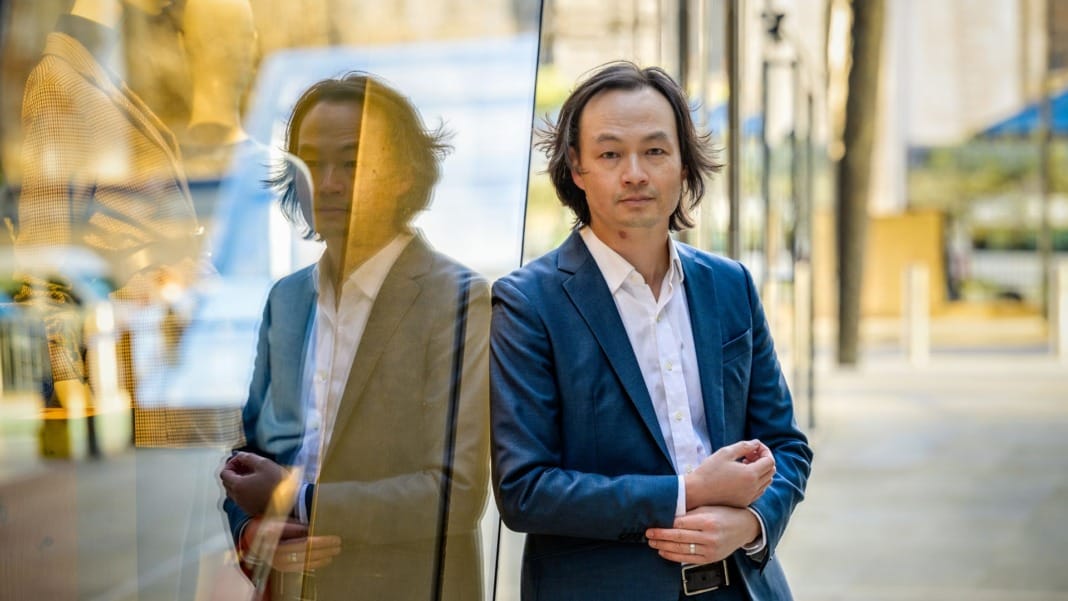Civilization 4 is an epic strategy game in which you control a settlement with the goal of expansion and dominance. As you play, you decide whether to conquer others, control most of the land, head to the stars, or become a world leader. A game with such lofty goals requires a strong start, and for Civilization 4, that meant a musical masterpiece: “Baba Yetu,” the game’s legendary title song, created by freelance composer Christopher Tin.
Initially released in 2005, “Baba Yetu” has gained acclaim beyond the video game industry. In 2009, Tin included the song on his classical album, Calling All Dawns. This made “Baba Yetu,” described by Time Magazine as a “rousing, anthemic theme song,” eligible for a Grammy nomination. On February 13, 2011, it won the Grammy for Best Instrumental Arrangement with Vocalist(s), making it the first piece of music composed for a video game to win a Grammy.
A lasting legacy
“Baba Yetu” plays a significant role in Tin’s career. Tin and the Washington National Opera hosted the “Christopher Tin Sing-In” with the Washington Metropolitan Gamer Symphony Orchestra in May. This event invited singers and gamers to perform Tin’s Civilization compositions together. Tin, who also composed “Sogno di Volare” for Civilization 6, has had a successful career in video games, movies, and beyond. His work can be heard in PGA 2K21, Splitgate, Civilization Online, and Karateka.
Tin recently told Polygon that he initially expected around 150 people to register for the Civilization event, but over 1,200 ended up registering. “The event was a huge success, and we were able to introduce a lot of gamers to the opera world—and likewise, a lot of people in the opera community got their first taste of video game music as well,” he said.
In an email interview with Polygon, Tin discussed the creation of “Baba Yetu” for Civilization 4 and the impact of video game music. Tin himself was a fan of the original Civilization game and its sequels. “Baba Yetu” was his first video game composition, leaving a lasting legacy.
Tin described how he was inspired by the visual assets provided by Firaxis Games. Specifically, he received an early rendering of the main menu screen, showing the Earth seen from outer space with the sun rising over North Africa. This serene image inspired the opening notes of the piece.
Firaxis had requested a fusion of African gospel vocals, orchestra, and cinematic percussion. Tin decided on a joyful tone idiomatic of African choral music.
The evolution of video game music
When Civilization 4 was released in 2005, video game music did not have the broad cultural reach it enjoys today. While there were already fans of video game music and specific composers had their followings, the industry was less respected outside its niche than it is now. The concept of symphony concerts devoted to video games was still novel. Video Games Live, the longest-running video game music concert tour, held its first concert in 2005, the same year Civilization 4 was released.
Since then, video game music concerts have become more popular, with multiple touring shows and symphony orchestras worldwide performing dedicated video game music concerts. Homegrown video game orchestras have also formed, reflecting the passion for video game music among young classical musicians.
The period between 2005 and the 2011 Grammy win saw a significant shift in the mainstream acceptance of gaming culture. The release of the Wii in 2006 and the launch of the iPhone in 2007 brought gaming to a broader audience. Facebook games like FarmVille also contributed to making gaming more mainstream and ubiquitous. This wider acceptance highlighted the creativity and artistic quality within the gaming industry.
Tin’s Grammy win was a significant personal achievement, but he views it as part of the ongoing history of game development. He believes the gaming industry continues to attract some of the most capable and creative minds.
Current projects
Tin spent time in Washington DC this summer, where his first opera commission was staged at the Kennedy Center. He worked on a new completion of Giacomo Puccini’s “Turandot,” commissioned alongside playwright Susan Soon He Stanton. The production received rave reviews and sold out its entire run.
Interestingly, Tin got the opera job because of his video game music. The artistic director of the Washington National Opera, Francesca Zambello, discovered his work through her teenage son, who was listening to Tin’s Civilization music. This led her to invite Tin to compose an opera.
Tin found the opera community welcoming and excited about his non-traditional background. The Kennedy Centre’s community outreach team engaged the public through his gaming profile. The highlight of his residency was the Christopher Tin Sing-In, a successful event that introduced many gamers to opera and many opera enthusiasts to video game music.





